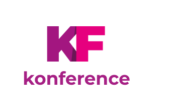Simultaneous interpreting
Suitable for:
 large conferences
large conferences works councils
works councils interpreting into more than one language
interpreting into more than one language
We provide:
 high-quality interpreting equipment
high-quality interpreting equipment two interpreters per language/booth
two interpreters per language/booth
Languages:
 CS, EN, FR, DE, ES, IT, RU, CN, PL, other languages on request
CS, EN, FR, DE, ES, IT, RU, CN, PL, other languages on request
Most suitable for large conferences or lectures. The interpreter and speaker talk at the same time, anyone who needs interpreting listens on headsets, so they hear the speaker’s message in real time. This is the most convenient type of interpreting for speakers and listeners.
Simultaneous interpreting requires high-quality interpreting equipment (booths, microphones, headsets, etc.) and two interpreters to ensure good quality and a positive experience for your audience. Simultaneous interpreting is a strenuous activity for the interpreter, who has to concentrate on more than one thing at once (listening, talking, subject-matter knowledge, overall context). In order to maintain this concentration, interpreters need to take turns so one interpreter can take over while the other takes a break.
We can provide sound and interpreting equipment and advise you on what equipment you will need.
'Kristýna is a very good interpreter. In 2014 she did an excellent job doing simultaneous interpreting for us at a linguistic conference on sign languages. This is a very new field for us with no settled terminology, yet she managed beautifully and our interpreters from other countries spoke highly of her and her work. She is flexible, an excellent communicator, and a good team player.'
What to expect:
- 1First you email us about your event – the type of event (conference, training, business meeting), topic, languages involved, and the date, length and location of the event.
- 2We talk to you about the most appropriate form of interpreting for your event, how many interpreters you will need and what kind of equipment you would like us to provide (booths, microphones, etc.).
- 3We send you a quote for the type of interpreting you requested (or more than one price option if you have not decided what type of interpreting you would like).
- 4Once you approve the price and conditions, your purchase order is binding.
- 5If your order includes providing equipment: About a week or two before the big day, we meet to view the location where the event will take place. We check to make sure the equipment you have ordered is compatible (whether the projector/microphone connectors work, whether the room has enough space for booths with a line of sight to the speaker, etc.) and agree on what we will need when setting up. Equipment setup (booth, etc.) usually takes place the day before the event.
- 6You send us “materials” (see below), ideally no later than a week before the event begins.
- 7A few days before the event we agree on what time the interpreters should arrive and who they should contact once they arrive.
- 8On the day of the event we interpret to the best of our ability, and before we go home we check in with you to make sure you were satisfied with our services. We are always grateful for any feedback.
What do we need from you?
In order to interpret effectively, we need to understand the subject matter. Skilled interpreters always make sure to study as much relevant information as possible on the subject matter. When we show up to interpret your event, you can be sure we will have done thorough prep work beforehand.
Interpreters need “materials” in order to prepare. What does this mean exactly?
- Basic information about the event: date, time, location, topic (title), link to the event website, languages to be spoken
- Information about the speakers – their names, bios, synopsis of their presentation
- Program – including names of speakers and presentations
- Other materials – presentations, list of participants, supplementary materials (syllabus for participants, speaker’s notes, glossaries, etc.)
- Additional “context” – any related events or circumstances, the purpose of the event, intended audience
We guarantee absolute discretion.
The materials are for our reference only.
FAQ
Do I need my own conference equipment?
How many interpreters will I need?
How much does interpreting cost?
Are you interested in simultaneous interpreting?
Or do you just want to ask us something?
Your personal data will be used only for the purposes of processing your order.
